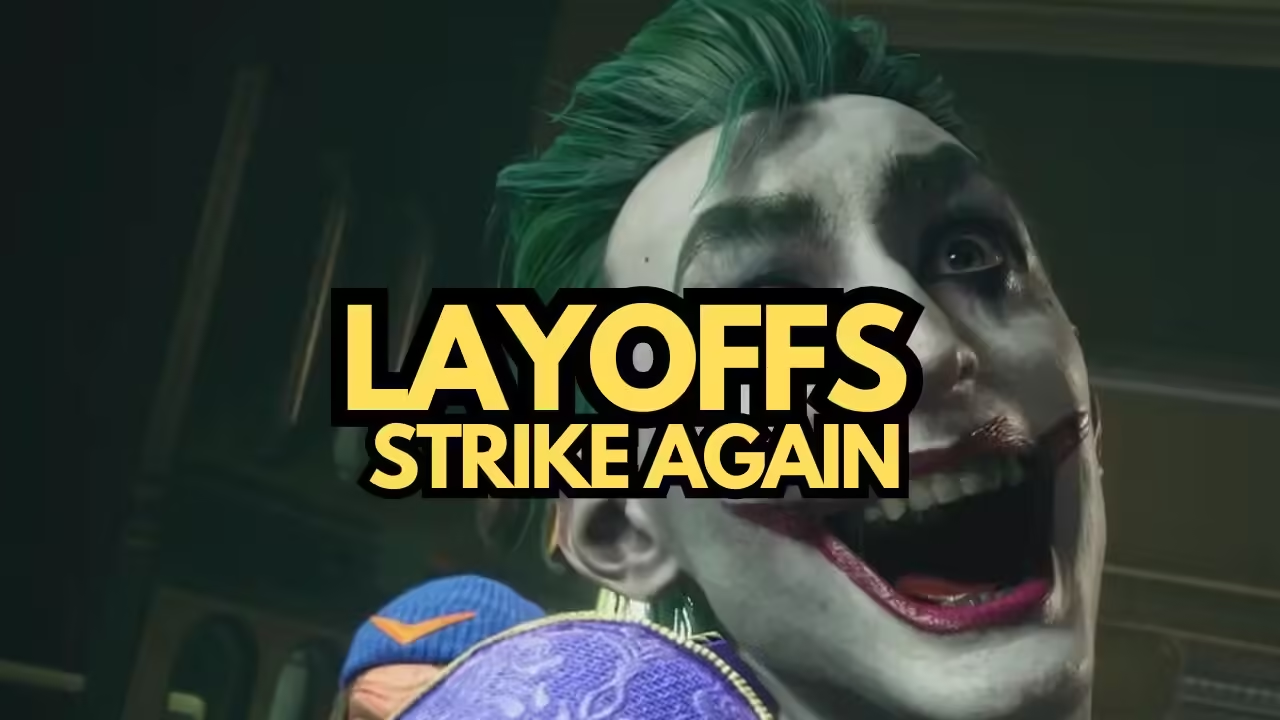As many predicted before, Rocksteady Studios sooner or later will get the impact of the recent turmoil of their latest game, Suicide Squad: Kill The Justice League.
Despite having a groundbreaking milestone on the Batman: Arkham series, Rocksteady is facing significant internal challenges following the underperformance of Suicide Squad: Kill the Justice League.
According to recent reports, the company’s Quality Assurance (QA) department has seen drastic layoffs, with nearly half of the team members losing their positions. The implications of this restructuring extend beyond the QA team, as job cuts ripple throughout the company, affecting both junior and long-standing employees alike.
The Impact of Poor Sales on Rocksteady’s Workforce
The financial setbacks following the poor sales of Suicide Squad: Kill the Justice League have directly contributed to Rocksteady’s decision to downsize. Eurogamer reports that the studio’s QA team has been reduced from 33 to just 15 members in the past month. This cut is not merely a numerical adjustment; it represents a loss of specialized knowledge and experience critical to the company’s ability to maintain the high standards it is known for.
The layoffs are not confined to the QA department. Redundancies have been reported in other areas of the company, affecting employees who have dedicated years to the studio. Among the most poignant stories emerging is that of a staff member who was informed of their redundancy while on paternity leave, highlighting the harsh reality of the business decisions impacting personal lives.
The reduction in staff has placed an increased burden on the remaining team members, particularly within the QA department. Employees who spoke to Eurogamer, under the condition of anonymity, expressed concerns about the increased workload and the subsequent impact on the quality of future projects. Senior management at Rocksteady has acknowledged these concerns, admitting that the product quality may suffer as a result of the reduced workforce.
The loss of experienced team members, some of whom have been with the company for over five years, is a significant blow to the morale and operational capacity of the studio. The layoffs have particularly affected junior staff, which raises questions about the future of Rocksteady’s talent pipeline and the retention of skills essential to its success.
Warner Bros.’ Financial Struggles and the Fallout from Suicide Squad
The layoffs at Rocksteady are occurring in the context of broader financial difficulties faced by Warner Bros. The publisher reported a 41 percent drop in gaming revenue year-over-year, attributing much of this decline to the weak performance of Suicide Squad: Kill the Justice League. Previously, Warner Bros. disclosed a staggering $200 million loss associated with the game, which has severely impacted its gaming division’s overall profitability.
Despite the game’s lackluster performance, work on its post-launch content continues. However, the future of the franchise and Rocksteady’s involvement in it remains uncertain. As Warner Bros. assesses its options, the company has yet to provide a clear roadmap for what lies ahead, leaving both fans and employees in a state of limbo.
With the downsizing of its workforce, Rocksteady is at a critical juncture. The immediate priority for the studio will likely be stabilizing its operations and supporting the remaining employees as they navigate the increased demands placed upon them. Long-term, Rocksteady’s ability to recover will depend on its capacity to innovate and deliver high-quality games that resonate with both critics and players.
This is not the first time when a game flopped at the market and then the developer behind it tried to sustain it by reducing their workforce. The developer behind Tales of Kenzera: Zau literally did it even after just 2 months after the game was released.
It is really a sad moment, nobody wants to lose their job. But, the meme about “Get Woke, Go Broke” spreading like a wildfire is not a joke.

